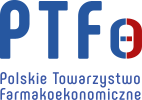From the Editors 2/2015
-
Copyright
© 2015 PRO MEDICINA Foundation, Published by PRO MEDICINA Foundation
User License
The journal provides published content under the terms of the Creative Commons 4.0 Attribution-International Non-Commercial Use (CC BY-NC 4.0) license.
Authors
| Name | Affiliation | |
|---|---|---|
Karina Jahnz-Różyk |
|
Dear Colleagues,
In this issue, we feature real world evidence (RWE) methodology research. Sameer Gokhale from India in his publication shed light on comparator outcomes profile (COP) document in health economics and outcomes research (HE&OR) setting for molecule’s program development activities. A growing importance of RWE can be also observed in Poland, however, the pace of the growth will mainly depend on building capabilities of the stakeholders in healthcare system. It was showed in article by Wilk et al. that applications with RWE had a positive Statement/Recommendation/Decision more often compared to those without RWE. Furthermore, analysis of real-life treatment patterns showed that wider use of fixed-dose combinations is a cost saving option both for patients and the public payer.
Also featured in this issue is the approach to the assessment of end points and the threshold of cost effectiveness of drugs in oncology. Oncological clinical trials utilize, apart from the overall survival (OS), the endpoints based on tumor assessment – e.g. progression-free survival, disease-free survival or response rate. It should be stressed that some immunotherapeutic agents are approved for the treatment of advanced melanoma (ipilimumab, pembrolizumab, nivolumab) and non-small-cell lung carcinoma NSCLC (nivolumab) and underlined that their specific mechanism of action require in particular to use appropriate endpoints for the efficacy evaluation. Also, the percentage of reimbursed innovative cancer drugs is higher in countries without the cost-effectiveness threshold, where better health outcomes could be observed. Our colleagues from Russia performed a meta-analysis of cost effectiveness of various schemes of chemotherapy in patients with mCRC with the presence of wild-type KRAS. Cetuximab is the most effective for the main clinical characteristics (overall survival, progression-free survival, objective clinical response, and the speed of resection of liver metastases) and most cost-effective (lowest "cost-effectiveness" ratio) technology, with similar to other targeted drugs’ safety profile.
Idiopathic Pulmonary Fibrosis (IPF) is a rare disease, and new drugs are not currently available in Poland. The publication of Kwiecień et al. shows the need to define rare diseases, strengthen the idea of an egalitarian approach to orphan drugs and the proper positioning of rare diseases in the Polish health care system.
According to Olga Zaliska’s article, access to drugs in Ukraine is insufficient as of now. The current structure of market is characterized by the inadequate consumption of drugs, a high use of medicines for symptomatic treatment, increasing the average drug cost, medical devices, generic drugs dominance and lack of legislative regulation of pricing for the original drugs. Importantly, positive results of reimbursement of medicines for hypertension indicated an urgent need to introduce mechanisms for reimbursement of other medicines for the treatment of diabetes and some socially important diseases.
For the first time on our journal we show vignettes as new tools in measurement of Quality of Life (QoL). The vignettes describe a hypothetical patient with thrombocytopenia and the symptoms which may impact the quality of life in their daily functioning.
On February 1st 2016, World Health Organization (WHO) declared the ongoing Zika virus outbreak to be a Public Health Emergency of International Concern. In this issue, we feature an article describing current situation concerning this virus.
We hope you will enjoy this issue of Journal of Health Policy & Outcomes Research.
Sincerely,
prof. Karina Jahnz-Różyk, Editor-in-Chief
Dr Joanna Lis, Deputy Editor-in-Chief












